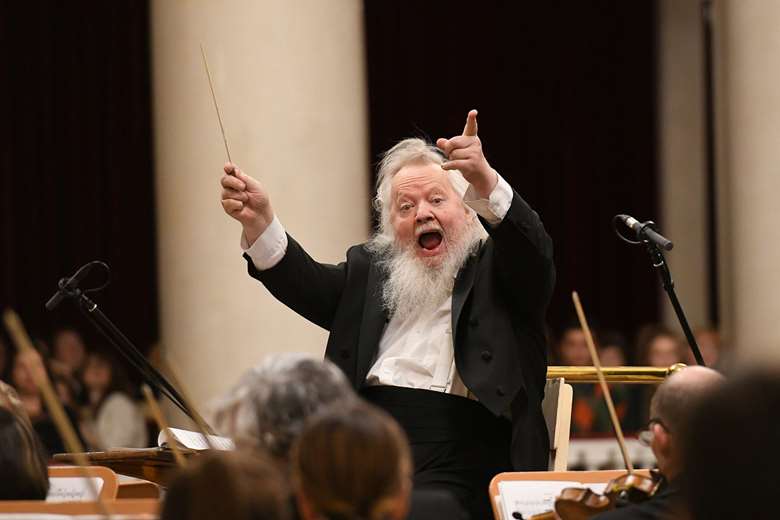Leif Segerstam – Obituary
James McCarthy
Thursday, October 10, 2024
Composer and conductor Leif Segerstam, born: March 2, 1944; died: October 9, 2024

The Finnish conductor and composer Leif Segerstam has died at the age of 80.
Segerstam is thought to be the most prolific composer of symphonies in history – with around 371 to his name. Many of them consist of a single 20- to 30-minute movement and boast a characterful title, such as Symphony No 329, More dreamings by Sofia (a Dog...). Many of his symphonies were specifically written so that they do not require a conductor. Outside of the symphonies, Segerstam also found the time to compose 30 string quartets and several concertos for violin, viola, cello and piano.
Segerstam’s life as a composer ran in parallel with a successful career as a conductor. He was Principal Conductor of the Vienna Radio Symphony Orchestra (1975-82), the Finnish RSO (1977-87), the Danish National Symphony Orchestra (1988-1995), the Helsinki Philharmonic Orchestra (1995-2007), the Turku Philharmonic Orchestra (2012-19), and was also a Professor of Conducting at the Sibelius Academy from 1997 to 2013.
Among his more notable recordings are a thrilling reading of Berg’s Wozzeck with the Swedish Opera for Naxos, about which Gramophone’s Michael Oliver wrote (in March 2002): ‘This comes close to being a giant-killer among Wozzeck recordings; I have a few reservations but I admire this new version greatly and recommend it heartily.’ When James Jolly spoke to Segerstam about this recording for Gramophone – ‘an alarming person to interview’, wrote James at the time – Segerstam neatly summarised his instinctive approach to musical interpretation: ‘I told the singers, “Don't worry: just live the part. Be extrovert so that it communicates to the audience.” It's like the metronome marks in Schoenberg's Erwartung. They're only suggestions. There should be a flexibility to respond to the dramatic situation so that it communicates.’
Segerstam was a great champion of the music of fellow Finn Einojuhani Rautavaara and recorded several symphonies and concertos by Rautavaara for the Ondine label with the Helsinki Philharmonic Orchestra.
But it is perhaps his recordings of Sibelius’s orchestral works that give the boldest impression of his qualities as a conductor and musician. In July 1996, Robert Layton wrote: ‘Segerstam’s account of Tapiola is among the most impressive we have had since Karajan. He evokes the chilling terrors and the awesome majesty of the Nordic forest to telling effect.’
‘Segerstam is never dull and makes you listen’, concluded Andrew Achenbach in his review of Segerstam’s recording of Sibelius’s Symphonies Nos 1 and 7 with the Helsinki PO for Ondine. That adventurous spirit – of avoiding routine performances or doing things by the book – that was the driving force of Segerstam’s career could sometimes be viewed as more of a flaw than a strength, as Achenbach wrote at the opening of the same review: ‘Can this really be the same Leif Segerstam who made such a meal of these two Sibelius symphonies only a decade or so previously?’
More recently, Segerstam made a series of four recordings with the Turku PO (for Alba) pairing Brahms’s symphonies with his own, which made for some striking album covers given the physical resemblance of the two composers. In reviewing the pairing of Brahms’s Fourth Symphony with Legerstam’s 295th (the so-called ulFSöDErBlom in Memoriam), Rob Cowan was impressed by the palpable sense of structure that Segerstam brought to the Brahms: ‘All four movements are given structure-conscious readings, the finale kept on a tight rein tempo-wise, more so than under most other conductors save Toscanini in London pre-war. Anyone whose pulse is as steady as on Segerstam’s reading has cause to celebrate. The first movement’s close, with its prominent timps, makes a powerful impression, as does the punchy Scherzo. A memorable performance, then, with a brainteasing booklet note that makes James Joyce read like Enid Blyton.’















